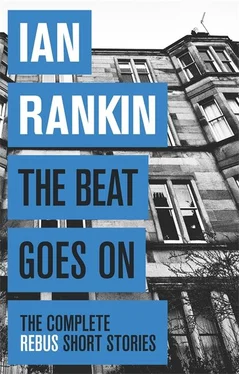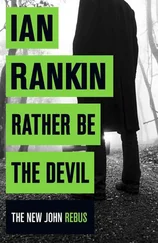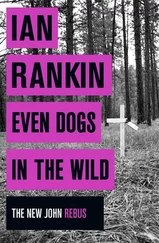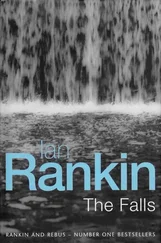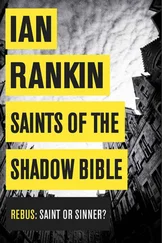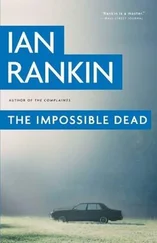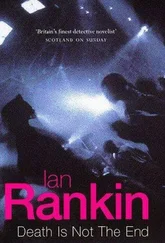The Poetry Society held weekly meetings. Hormonally charged young men (all the poets seemed to be male, the audience fifty — fifty) would recite odes of love lost, love unrequited, love from afar. My poems were a bit different. A typical opening might be:
Mutated machine-guns patrolling the subways
While glue-sniffing kids hang themselves in lift-shafts...
I had another poem called ‘Strappado’ (a form of torture) and yet another telling the moving story of a husband who strangles his young wife on their honeymoon. Where was this stuff coming from? Why was I writing lyrics about addicts and killers and crucifixion? I can’t find anything in my early life to justify this apparent interest in the bizarre and the demonic. I even had an alter ego, a drifter called Kejan, who cropped up in several poems and who would usually be drinking absinthe in Paris or traversing the stews of Alexandria:
A foreign body in the bloodstream of Berne,
Kejan tips the remnants of tobacco
From the pack onto the paper,
His breath scattering the flakes
Onto the floor
To lie wriggling in the draught.
None of this, it goes without saying, was helping me get laid.
But I did get to meet a lot of ‘real’ writers — for the first time in my life. The Poetry Society had funding to bring one professional poet to do a reading each week, and afterwards we would all go for a drink or nine, during which time the poets would attempt to sell us copies of their books and pamphlets while we’d be asking questions such as ‘How do I get published?’ I soon learned that most poets don’t ‘make a living’ but have to supplement their income with other work. I wondered if the same was true of fiction-writers...
My poems were far from the Wordsworthian ideal of ‘emotion recollected in tranquillity’. They were narratives. My characters went places, and did things or things happened to them. There were always consequences. I started writing short stories, influenced by Ian McEwan, Jayne Anne Phillips, and anyone else I happened to be reading at the time. I was trying to find out two things: what I wanted to write about; and how to do the actual writing. It took me a while to realise that the thing I really wanted to write about was enveloping me and embracing me every step of the way and with each and every breath I took.
It was Edinburgh itself.
This is a haunted city. For centuries it was haunted by the memory that it had once been a thriving capital, before signing that status away to London. It’s a city rife with ghost tours. Its cemeteries teem, and there are myriad streets, tunnels and caves just below ground level. It’s a city that hides itself away from the world. In the past, whenever invaders called, the denizens would scurry underground, emerging once the triumphant armies had tired of taking possession of what appeared to be a ghost town. The city the tourist sees, even today, is far from the whole story. Edinburgh is also home to a bloodstained history. Burke and Hare were serial killers who posed as grave robbers, slaughtering at least seventeen victims before being brought to justice (after which Burke’s skin was crafted into a series of gruesome souvenirs, some of which can be viewed in the city’s museums).
There were stories of well-respected citizens who had confessed to devil worship, of a coach driven by a headless horseman, of Covenanters executed and witches burnt. By night, the teenage Robert Louis Stevenson would creep from his home to consort with harlots, poets and ruffians in the seediest bars he could find...
The more I looked at Edinburgh, the more I learned. The city is geographically divided — the mazey Old Town to the south of Princes Street, the rational and elegant New Town to the north. The journey the young Stevenson took from one to the other was the journeying of Jekyll towards Mr Hyde. But was that particular Edinburgh a city of the past? Not really. In October 1977, a year before I’d arrived as a student, two teenage girls had vanished after a night out. Their last sighting was in a bar called The World’s End. Their bodies were found the next morning. For more than two decades, their killers went undetected. Edinburgh’s students knew that there really was a ‘bogey man’ out there; we didn’t need the frisson provided by ghost tours and the like.
Contemporary Edinburgh and the city of the past collided in my imagination. I was living in the 1980s but reading about Miss Jean Brodie (set in the Depression years of the 1930s), Jekyll and Hyde, and the Justified Sinner. The Edinburgh I walked through by night seemed to have changed very little. There was a heroin problem, a housing crisis, and HIV was on the horizon. There was bitter rivalry between the city’s two soccer teams, spilling over into weekend violence. Go-go bars would eventually be replaced by lap-bars; we all knew that Leith had the red-light district, but that the saunas were also something more than they seemed. I’d started listening to a lot of music which would later be classified as ‘goth’ — Throbbing Gristle and Joy Division and The Cure. My imagination was darkening all the time. I was sleeping till noon and staying up until four a.m. I was writing, reading, writing, reading and then writing some more. My short stories had titles like ‘The Suffering’, ‘Confession’, ‘The Violation of Mr Paton’, ‘Pig’ and ‘Isolation’. I’d finished my degree but applied to do a PhD with Muriel Spark as the subject. Her stories were filled with supernatural elements, gothic settings, harsh satire and devilry. But she was such an elegant, subtle and concise writer that often critics chose not to notice the darkness lying just below the shimmering surface of her prose. I was learning from her, too...
One day I got a letter telling me I’d won second prize in a short-story contest run by the Scotsman newspaper. They would print the story and give me some cash. It was called ‘The Game’ and concerned the last day in the life of a shipbuilding yard. (I’ve no idea where that came from either.) Around the same time, another story was accepted for publication by New Edinburgh Review magazine. Two more were taken by the BBC to be broadcast on radio. A story about a cop patrolling a soccer game was going to appear in a collection called New Writing Scotland . In August 1984 I won a story contest organised by a local radio station. Peter Ustinov presented me with my prize.
Bloody hell, I thought. It could only be a matter of time before my first novel found a publisher...
Ahh, my first novel. It was called Summer Rites and was a black comedy about a hotel in the Scottish Highlands. It never did find a publisher, but I was already busy with my next book, The Flood . Taking to heart the adage ‘write what you know’ I was setting this new book in a (thinly disguised) version of my hometown. It did find a publisher, a small press in Edinburgh which printed a couple of hundred hardback copies and maybe seven hundred paperbacks, many of which went unsold and were pulped.
The same week I signed the contract for The Flood , I got the idea for yet another novel — set in Edinburgh this time, the gothic Edinburgh I’d been reading about at university, but set very much in the present and featuring:
‘Male hero (a policeman?)’
On 19 March 1985 I recorded in my diary that ‘I’ve not written any of it yet, but it’s all there in my head from page 1 to circa page 250’. On 24 March I wrote the first four pages and decided to give it the working title Knots and Crosses . By 4 July the first draft was finished, but for some reason I didn’t start the second draft until 18 September. I’d typed out the first couple of revised pages when, again according to my diary, my flatmate at the time, Jon Curt, suggested a trip to the pub where he worked. The pub was called the Oxford Bar: ‘splendidly uncontrived and open until two a.m.’ It would be a few years before the Oxford Bar appeared in a Rebus novel (I thought bars, streets, etc. had to be fictional in a work of fiction), but I was glad to have made its acquaintance.
Читать дальше
